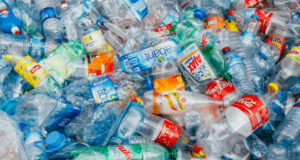The problem of plastic materials on the environment
The use of plastic materials is convenient, and it is the preferred choice by both manufacturers and consumers due to its lightweight and its ability to store and prevent food contamination but globally, the effect of platics on the environment is devastating especially when it is improperly managed. Because Plastic packaging is typically used for a short period of time and thereafter disposed-off, they cause great danger to the environment. From choking of gutters to threats to marine waters, affecting fishing activities.
According to a BBC report, more than 1.3 billion tonnes of plastic could enter the environment globally by the year 2040 and 95% of these plastic products are for single use with only 5% being recycled.
To deal with the problem of plastic waste, governments around the world adopt measures to encourage recycled plastic to help tackle plastic waste rather than being sent to landfills.
Research has however found that, recycling plastic is often more expensive than using new plastic. Some countries therefore completely ban single-use plastics packaging whiles other countries use tax policies to discourage plastic use.

Using Tax Policy to deal with Plastic Wates
One way to deal with the problem of plastic waste is to discourage the use of plastic in packaging. Plastic packaging tax (PPT) is one way to discourage the use of plastic materials. Such a tax will aim at encouraging the use of less new plastic by levying additional tax on all plastic products, which will lead to increase in prices of plastic products.
Effect of a Plastic Packaging Tax:
The possible effect of a Plastic packaging tax is that producers will adopt packaging materials that is easier to recycle and discourage them from creating plastic packaging which is difficult to recycle. Businesses will be more conscious of the impact of their plastic packaging decisions on the environment and drive a change in attitude to a more environmentally friendly packaging.
Key tax policy considerations
Any intention to introduce a plastic packaging tax should consider the scope of the tax. It should apply to both produced or imported plastic packaging which uses insufficient recycled content. For example, if a packaging component contains certain amount of plastic, the tax should then apply.
Plastic packaging manufactured or imported for use in the packaging of a medicinal product can be considered exempt from the tax due to the essential use of the package. This is critical because we cannot entirely deal away with plastic.
Thus, defining products within the scope of the tax is crucial for its implementation. Other consideration should focus on the rate of tax in order not to make goods and service extremely expensive. The exact point at which the tax is charge is also important to be determined to avoid a cascading effect of the tax.
Past Policies to deal with Plastic Waste:
The government in an attempt to deal with plastic waste introduced 10 % Environmental Excise Tax (EET) under the Customs and Excise (Duties And Other Taxes) (Amendment) ACT, 2013, (Act 863).
The law provided that, the tax shall be computed on the Cost, Insurance and Freight (CIF) value of plastic and plastic products imported and it is paid at the point of entry into Ghana. The law also provided that, not less than 50% of the revenue accruing shall be paid into a Fund designated as “Plastic Waste Recycling Fund” and the revenue accruing shall be dedicated to recycling of plastic waste and production of plastic waste bins and bags and the production and use of biodegradable plastics.
The Minister for Local Government and Rural Development shall in consultation with the Minister for Finance specify the use and modalities for the use of the moneys and the Minister for Local Government and Rural Development shall, at the end of each year submit to Parliament a report on the use of the moneys.
The Ghana Plastic Manufacturers Association (GPMA) in 2019 said the 10 per cent Environmental Excise Tax (EET) that was introduced in 2013 had accrued a total sum of GH¢912 million, and the amount had been paid into the Consolidated Fund because the Fund’s secretariat was yet to be set-up. According to the GPMA, when the money accrued is used effectively, government could build ultra-modern waste recycling plants to deal with the issue of plastic waste.
In July 2021, The Minister of Environment, Science, Technology and Innovation, (MESTI), Dr. Kwaku Afriyie hinted that government is considering a plastic waste management policy that will impose certain levies on consumers who use plastic products.
Conclusion:
Manufacturers and importers of plastic packaging products may need to prepare for the new tax on plastic wastes. Consumers must embrace themselves for increases in prices of plastic products. Since Plastic packaging tax (PPT) is an environmental tax designed to create incentive for environmentally friendly packaging, entrepreneurs can take advantage of this new policy to start producing paper bags which are environmentally friendly. The amount received from the plastic tax should be put to its appropriate use. It is unclear how the amount collected from the 2013 10 % Environmental Excise Tax (EET) has been utilised.
The writer is a Tax Lawyer/Consultant and a member of the Chartered Institute of Taxaion. 0266-656595 ([email protected])










